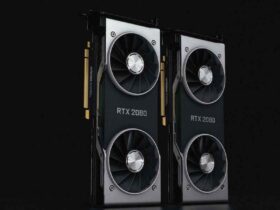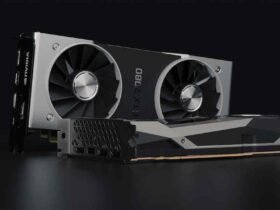The long-standing rivalry between Intel and AMD has always sparked debates among enthusiasts and professionals. Choosing the suitable processor is crucial, significantly impacting performance, streaming quality, and overall user experience. This article aims to delve into the heart of this competition, offering a comprehensive comparison between Intel and AMD processors, specifically in gaming and streaming. By examining factors such as performance benchmarks, price-to-performance ratios, compatibility, and user experiences, we aim to provide valuable insights to help you decide which brand best suits your gaming and streaming needs.
Is Intel Or AMD Better For Gaming And Streaming?
Deciding between Intel and AMD for gaming and streaming depends on your specific needs and budget. Intel processors typically offer higher clock speeds and better single-core performance, which is excellent for gaming. However, AMD often provides better multi-core performance at a more affordable price, making it a strong choice for multitasking and streaming. Both brands have their strengths, so Intel might be the way to go if you prioritize high frame rates in games. But if you’re looking for a balance between gaming, streaming, and value, AMD could be more suitable. Ultimately, both brands offer competitive options, and the best choice may come down to the specific models and their performance in the games and applications you use most.
Brief Overview Of The Debate Between Intel And AMD
The debate between Intel and AMD, two titans in the CPU industry, revolves around their strengths, technological innovations, and market positions. Intel, historically the more dominant player, has been renowned for its high-performance processors, especially excelling in single-core performance, which is crucial for tasks requiring high clock speeds, like certain types of gaming. Intel’s chips are also favored for their energy efficiency and integrated graphics performance.
On the other hand, AMD has made significant strides in recent years, challenging Intel’s supremacy. AMD’s Ryzen series, known for offering high core and thread counts at competitive prices, has gained popularity, especially among users who engage in multi-threaded tasks like video editing, 3D rendering, and streaming alongside gaming. AMD’s commitment to keeping the same socket type for multiple generations has also been praised for providing better long-term value in terms of upgradability.
The debate often centers on price-to-performance ratio, power efficiency, compatibility with other hardware, and specific use-case scenarios like gaming, streaming, or professional workloads. While Intel is often perceived as the leader in raw processing power and efficiency, AMD offers better value and forward-looking technology, particularly with their early embrace of PCIe 4.0 and 5.0. As both companies continue to innovate and release new products, the debate remains dynamic, with the balance of advantages frequently shifting, making the choice between them dependent on the latest technologies and individual user needs.
Importance Of Choosing The Suitable Processor For Gaming And Streaming.
Choosing a suitable processor is crucial for gaming and streaming, as it directly influences the performance and overall experience in these demanding activities.
- Performance In Gaming: The processor (CPU) plays a crucial role in gaming, particularly in processing game logic physics and handling non-graphics-related tasks. A powerful CPU ensures smoother gameplay, higher frame rates, and a more responsive gaming experience, especially in CPU-intensive games.
- Streaming Quality: For streamers, the CPU is even more critical. It handles gaming tasks and manages the simultaneous encoding of video for streaming. This requires a processor to multitask efficiently without causing lags or dips in-game performance.
- Future-proofing: Gaming and streaming technologies are rapidly evolving. Investing in a capable CPU means your system remains relevant and efficient for a more extended period, handling newer games and streaming software without frequent upgrades.
- Compatibility And Upgradability: The suitable processor affects the overall build of the PC. It determines the motherboard choice, impacts RAM compatibility, and influences the entire PC’s upgradability path. A good choice can save costs and hassle in the long term.
- Balancing Budget And Performance: Processors vary significantly in price. A key aspect is finding a CPU that meets your gaming and streaming needs and fits within your budget, ensuring you get the best value for your investment.
- Heat Management And Power Consumption: High-performance CPUs can generate significant heat and consume more power. The exemplary processor balances performance with thermal and power efficiency, affecting the longevity of the CPU and the system.
Intel Processors For Gaming And Streaming
Intel processors have long been famous for gaming and streaming due to their strong performance characteristics. Here are some key aspects of Intel CPUs in this context:
High Single-Core Performance:
Intel CPUs are known for their excellent single-core performance. This is particularly beneficial for gaming, as many games, especially older titles, are optimized for single-threaded performance. High clock speeds ensure better frame rates and a smoother gaming experience.
Overclocking Capabilities:
Many Intel processors, especially those in the K-series, offer unlocked multipliers for overclocking. This feature allows gamers and streamers to push the CPUs beyond their base clock speeds, potentially yielding better performance in both gaming and streaming tasks.
Integrated Graphics:
Some Intel CPUs come with integrated graphics (Intel HD and Iris graphics), which can be a boon for low-end gaming or streamers needing a backup in case of dedicated GPU failures.
Efficiency And Heat Management:
Intel’s newer generations, like the 10th and 11th Gen Core processors, have improved power efficiency and thermal performance. This improvement is crucial for maintaining stable performance during long gaming or streaming sessions.
Technological Advancements:
Intel’s latest CPUs feature new technologies like PCIe 4.0 support, which is essential for faster data transfer and future-proofing with new GPUs and SSDs. They also include features like Hyper-Threading (allowing more threads per core), which is beneficial for multitasking and streaming.
Popular Choices For Gamers And Streamers:
Some popular Intel processors among gamers and streamers include the i5, i7, and i9 series. The i5 series offers excellent value for purely gaming purposes, while the i7 and i9 series, with their higher core and thread counts, are more suited for gaming plus streaming, providing ample power for handling both tasks simultaneously.
Compatibility With High-Speed Memory:
Intel processors generally support high-speed RAM, which is crucial for both gaming and streaming, especially in scenarios involving high-resolution textures and maintaining high frame rates.
AMD Processors For Gaming And Streaming
AMD processors have gained significant popularity in the gaming and streaming community, offering compelling features and excellent value. Here’s an overview of what makes AMD CPUs a great choice for these applications:
Multi-Core Performance: AMD’s Ryzen series stands out for its multi-core and multi-threading capabilities. This is particularly advantageous for streaming, where handling gaming and live video encoding simultaneously demands robust multi-threaded performance.
Price-To-Performance Ratio: AMD has been praised for offering high-performing CPUs at more affordable prices than Intel. This value proposition is attractive for gamers and streamers who seek top-tier performance without breaking the bank.
Improved Gaming Performance: Recent AMD processors, like the Ryzen 5000 series, have shown significant improvements in single-core performance, narrowing the gap with Intel. This enhancement translates to better frame rates and smoother gaming experiences, even in CPU-intensive titles.
PCIe 4.0 Support: AMD was among the first to adopt PCIe 4.0 in their mainstream processors. This feature allows for faster data transfer speeds, benefiting high-speed SSDs and the latest GPUs, which is crucial for future-proofing gaming and streaming setups.
Overclocking And Customization:
While not all AMD processors are unlocked for overclocking, many in the Ryzen lineup are, giving users the flexibility to boost performance. AMD’s Ryzen Master software also offers an accessible platform for tuning and customizing processor performance.
Thermal Design And Efficiency: AMD processors, particularly their newer models, are known for efficient power consumption and heat management, essential for maintaining performance stability over extended gaming and streaming sessions.
Platform Longevity And Compatibility: AMD has committed to long-term socket compatibility, making it easier for users to upgrade their CPUs without needing a new motherboard. This approach provides a more cost-effective upgrade path.
Popular AMD Models: Models like the Ryzen 5 and Ryzen 7 are popular among gamers for their balance of price and performance, while the Ryzen 9 series, with higher core and thread counts, is favored for more demanding gaming and streaming tasks.
Conclusion
The choice between Intel and AMD for gaming and streaming ultimately depends on your specific needs, preferences, and budget. Intel processors excel in high single-core performance and are known for superior gaming performance, especially at higher clock speeds. They are ideal for gamers focused on achieving the highest frame rates. Additionally, Intel’s technological advancements and efficiency in power and heat management make them a strong choice for high-end gaming setups. On the other hand, AMD has made remarkable strides with its Ryzen series, offering excellent multi-core performance, which is highly beneficial for streaming and multitasking. The price-to-performance ratio of AMD processors is particularly appealing to those who seek a balance between gaming, streaming, and affordability. With features like PCIe 4.0 support and a commitment to long-term socket compatibility, AMD presents a compelling, future-proof option.





















Leave a Reply